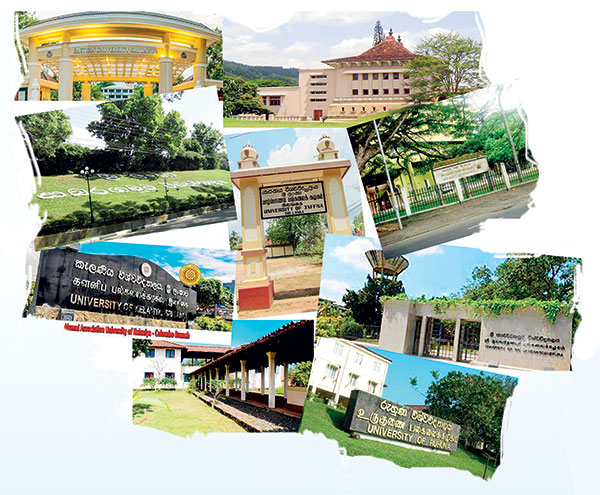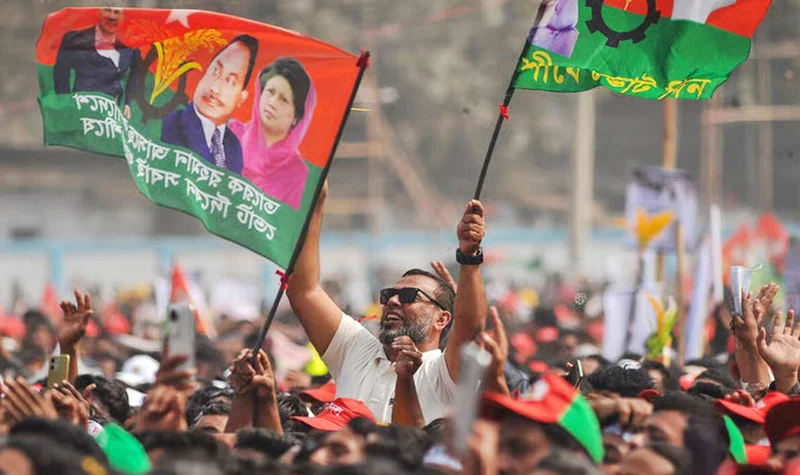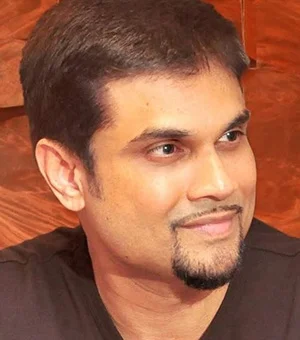Features
Where Arts Faculties should be headed – a rejoinder

By FARZANA HANIFFA
 Over a month ago, I wrote in this column about the way the current Quality Assurance processes, including the Qualifications framework, has little space for Humanities and Social Sciences (H and SS) knowledge (The Island Feb.1 2022). Prof. Susirith Mendis, Former Vice Chancellor of the University of Ruhuna, responded to my column by arguing that the knowledge imparted by H (and SS) was important but that the Sri Lankan University system had failed to produce good quality practitioners of these disciplines (The Island Feb. 16 2022). He stated further that these academics were therefore unable to address and critique neoliberal tendencies in recent developments in Education Reform. He also claimed that the Arts faculties were not playing the role that they should, i. e., function as “the spirit and the soul” of the university.
Over a month ago, I wrote in this column about the way the current Quality Assurance processes, including the Qualifications framework, has little space for Humanities and Social Sciences (H and SS) knowledge (The Island Feb.1 2022). Prof. Susirith Mendis, Former Vice Chancellor of the University of Ruhuna, responded to my column by arguing that the knowledge imparted by H (and SS) was important but that the Sri Lankan University system had failed to produce good quality practitioners of these disciplines (The Island Feb. 16 2022). He stated further that these academics were therefore unable to address and critique neoliberal tendencies in recent developments in Education Reform. He also claimed that the Arts faculties were not playing the role that they should, i. e., function as “the spirit and the soul” of the university.
Prof. Mendis is largely correct in claiming that our H (and also SS) faculties are in crisis, and his intervention is appreciated. I agree, for instance with the Professor’s suggestion that the Arts education reform process requires critique. The compulsion to teach badly defined “employability skills” involves an erasure of the knowledge and perspective that an H and SS educations offers. It is difficult however to agree with some other elements of Prof. Mendis’ critique. His placing of responsibility at the feet of H and SS academics is inadequately informed by the history of developments in Arts Faculties and ultimately personalizes a structural problem for which broader interventions are required. Prof. Mendis’ critique also reflects the elite politics and class dynamics at play in the public conversation about Arts Education as well as the Education reform process. Unless this critique’s own prejudices are addressed, we will not be able to push the conversation forward on the issue.
That there is a crisis in Arts education in Sri Lanka is not news. As members of Arts Faculties, we wish that our Faculties were better equipped research centres, that our students had greater competence in both critical thinking and English language ability when they come to us, that gender relations in our faculties were not from the last century, that our faculties – by and large sites of Sinhala Buddhist hegemony– had wider ethnic representation and more space for the discussion of ethnoreligious tensions in the country, and that our postgraduate programmes were supported and regulated better, and, most of all, we wish that the speedy neoliberalisation of our faculties that is ongoing—emulating a failing model from the west– can be more successfully resisted. Our Kuppi columns are an attempt to draw attention to the failings within our universities and also to show that the public commentary, regarding this crisis, is not asking the right questions and that the policymakers are not responding to the right problems.
There are historical reasons for the current state of the Arts Faculties. Prof. Mendis’s piece is more sophisticated than many but his position reflects the standard criticisms of Arts faculties and the nostalgia for a bygone era where the humanities (mainly in the English language) flourished. Prof. Mendis asks if anti-colonial thinking—that brought about the preoccupation with swabhasha—is legitimate, and bemoans the nativism that has been the result of our flirtation with such theories. He alleges that the emphasis on the local has produced closed-minded academics uninformed by global development, unable to think out of the box.
Much of this criticism is valid and has in fact been discussed in this column (See Harshana Rambukwella, The Island Nov. 23 2021.). The crisis in Arts Education has also been discussed by both Kumudu Kusum Kumara (2013) and Prabha Manurathna (2018) in excellent essays that elevate the conversation substantially. Kumara discusses the transformation to swabasha as a national level policy that upended the university system. As Kumara points out, the policy of teaching H and SS disciplines only in the local languages drove out academics from the university system and required those who stayed to teach in Sinhala and Tamil without access to adequate translated reading materials. Instruction was conducted only through delivery of lectures and student reading was largely confined to handed down lecture notes. Education policymakers did not invest in substantive translation programmes or fund research by H and SS academics to produce knowledge in the local languages. To date, the lack of support for Arts Faculties continues: the STEM faculty student to teacher ratio is 10:1 while in Arts faculties it is 18:1. Talking about the nativism of Sinhala-speaking academics without discussing the structural conditions that led to the policy and then limited the resources with which they could work, is disingenuous. Further, no attempt has been made to recognise the many who have flourished in the local universities despite such policies.
That English capacity is important for high quality training in the H and SS is not disputed. As we know, English speaking skills are wielded like a sword by the Sri Lankan middle class and excellence, competence, and trustworthiness are considered a function of English-speaking ability in such circles. Current Higher Education policymaking regarding English is driven by its value as a class marker more than as an instrument towards greater subject specialisation or a broader perspective.
That the mostly Tamil and Sinhala speaking staff at the University struggle to express themselves well in English should not be considered a sign of their lack of ability across the board, but a reflection of the swabasha policy itself. Experts from the UGC, running workshops for quality assurance, routinely talk down to us when we don’t ask questions using the “right” language. It is time that education policymakers better recognise the intellectual and emotional labour required of academics whose first language is not English, to function under such conditions. I raise this point only partially in response to Professor Mendis; most critics of Arts Faculties – from other faculties within the universities—speak to and of their colleagues in Arts Faculties as incompetent based on their verbal performance in English. Such a perspective draws from a larger position regarding the “failures” of the Arts Faculties’ that is similar to the one articulated by Prof. Mendis.
Prabha Manurathna’s essay on Arts Education draws attention to the “actual Arts student” that enters the local university system. Drawing attention to the students’ class background Manurathna critiques how the current reform process imagines their transformation. A recent audit report that was discussed in this column also referenced the kind of students that the Arts Faculties attracted. They were the students who went to schools that didn’t have Science Education facilities; they were from the poorest districts in the country, and they were mostly women. The report described them as the weakest students entering universities, following the least useful degree programme. They were also the largest percentage of university entrants. The recommendation from the Audit Office was that technology education needed to improve so that students from these underprivileged areas could be better equipped for the future, and a technologically capable workforce would be produced. The report even suggested that as a ‘developing country’ we could not afford to have so many Arts Graduates, or invest in the fine Arts. The report is evidence of the low regard for H and SS education at the policy level and we have critiqued this report (Farzana Haniffa, The Island 27 April 2021). The report also confirms that Arts Faculties are home to large numbers of students from severely under-sresourced schools and very strained social and economic circumstances.
The elitism at work in the prevailing critiques of Arts Faculties, including in Prof. Mendis’ essay, is reflected in the absence of a sociopolitical analysis of the demographic that Arts Faculties in Sri Lanka largely serve. It is also reflected in the aspirations expressed as to what the Arts and Humanities should offer students. In Arts Faculties in Sri Lanka we are struggling to empower students with huge disadvantages. It is well to remember that the celebrated homes of Humanities that Prof. Mendis references – like Harvard University– are elite institutions that benefited from the exploitation of the downtrodden and the enslaved. They were engaged in the reproduction of the elite and not in producing emancipatory knowledge or opportunities for the struggling urban and rural underclass.
It is not the Harvards of this world that we should emulate, but contexts that have enabled the emergence of labour struggles and cultural critique informed by class analysis. It is also here that our decolonial critique needs to be located. Our task should be to enable our students to better understand and critique the structural conditions behind their circumstances and equip them to change these conditions for their communities. It is to this end that we should gear our educational goals and not merely to equip individual students to escape class through “entrepreneurship.” Having students aspire to become CEOs of exploitative enterprises that trap future generations in poverty is the neoliberal project that we should resist.
(The author is Professor and Head in the Department of Sociology at the University of Colombo)
Kuppi is a politics and pedagogy happening on the margins of the lecture hall that parodies, subverts, and simultaneously reaffirms social hierarchies.
Features
Crucial test for religious and ethnic harmony in Bangladesh

 Will the Bangladesh parliamentary election bring into being a government that will ensure ethnic and religious harmony in the country? This is the poser on the lips of peace-loving sections in Bangladesh and a principal concern of those outside who mean the country well.
Will the Bangladesh parliamentary election bring into being a government that will ensure ethnic and religious harmony in the country? This is the poser on the lips of peace-loving sections in Bangladesh and a principal concern of those outside who mean the country well.
The apprehensions are mainly on the part of religious and ethnic minorities. The parliamentary poll of February 12th is expected to bring into existence a government headed by the Bangladesh Nationalist Party (BNP) and the Islamist oriented Jamaat-e-Islami party and this is where the rub is. If these parties win, will it be a case of Bangladesh sliding in the direction of a theocracy or a state where majoritarian chauvinism thrives?
Chief of the Jamaat, Shafiqur Rahman, who was interviewed by sections of the international media recently said that there is no need for minority groups in Bangladesh to have the above fears. He assured, essentially, that the state that will come into being will be equable and inclusive. May it be so, is likely to be the wish of those who cherish a tension-free Bangladesh.
The party that could have posed a challenge to the above parties, the Awami League Party of former Prime Minister Hasina Wased, is out of the running on account of a suspension that was imposed on it by the authorities and the mentioned majoritarian-oriented parties are expected to have it easy at the polls.
A positive that has emerged against the backdrop of the poll is that most ordinary people in Bangladesh, be they Muslim or Hindu, are for communal and religious harmony and it is hoped that this sentiment will strongly prevail, going ahead. Interestingly, most of them were of the view, when interviewed, that it was the politicians who sowed the seeds of discord in the country and this viewpoint is widely shared by publics all over the region in respect of the politicians of their countries.
Some sections of the Jamaat party were of the view that matters with regard to the orientation of governance are best left to the incoming parliament to decide on but such opinions will be cold comfort for minority groups. If the parliamentary majority comes to consist of hard line Islamists, for instance, there is nothing to prevent the country from going in for theocratic governance. Consequently, minority group fears over their safety and protection cannot be prevented from spreading.
Therefore, we come back to the question of just and fair governance and whether Bangladesh’s future rulers could ensure these essential conditions of democratic rule. The latter, it is hoped, will be sufficiently perceptive to ascertain that a Bangladesh rife with religious and ethnic tensions, and therefore unstable, would not be in the interests of Bangladesh and those of the region’s countries.
Unfortunately, politicians region-wide fall for the lure of ethnic, religious and linguistic chauvinism. This happens even in the case of politicians who claim to be democratic in orientation. This fate even befell Bangladesh’s Awami League Party, which claims to be democratic and socialist in general outlook.
We have it on the authority of Taslima Nasrin in her ground-breaking novel, ‘Lajja’, that the Awami Party was not of any substantial help to Bangladesh’s Hindus, for example, when violence was unleashed on them by sections of the majority community. In fact some elements in the Awami Party were found to be siding with the Hindus’ murderous persecutors. Such are the temptations of hard line majoritarianism.
In Sri Lanka’s past numerous have been the occasions when even self-professed Leftists and their parties have conveniently fallen in line with Southern nationalist groups with self-interest in mind. The present NPP government in Sri Lanka has been waxing lyrical about fostering national reconciliation and harmony but it is yet to prove its worthiness on this score in practice. The NPP government remains untested material.
As a first step towards national reconciliation it is hoped that Sri Lanka’s present rulers would learn the Tamil language and address the people of the North and East of the country in Tamil and not Sinhala, which most Tamil-speaking people do not understand. We earnestly await official language reforms which afford to Tamil the dignity it deserves.
An acid test awaits Bangladesh as well on the nation-building front. Not only must all forms of chauvinism be shunned by the incoming rulers but a secular, truly democratic Bangladesh awaits being licked into shape. All identity barriers among people need to be abolished and it is this process that is referred to as nation-building.
On the foreign policy frontier, a task of foremost importance for Bangladesh is the need to build bridges of amity with India. If pragmatism is to rule the roost in foreign policy formulation, Bangladesh would place priority to the overcoming of this challenge. The repatriation to Bangladesh of ex-Prime Minister Hasina could emerge as a steep hurdle to bilateral accord but sagacious diplomacy must be used by Bangladesh to get over the problem.
A reply to N.A. de S. Amaratunga
A response has been penned by N.A. de S. Amaratunga (please see p5 of ‘The Island’ of February 6th) to a previous column by me on ‘ India shaping-up as a Swing State’, published in this newspaper on January 29th , but I remain firmly convinced that India remains a foremost democracy and a Swing State in the making.
If the countries of South Asia are to effectively manage ‘murderous terrorism’, particularly of the separatist kind, then they would do well to adopt to the best of their ability a system of government that provides for power decentralization from the centre to the provinces or periphery, as the case may be. This system has stood India in good stead and ought to prove effective in all other states that have fears of disintegration.
Moreover, power decentralization ensures that all communities within a country enjoy some self-governing rights within an overall unitary governance framework. Such power-sharing is a hallmark of democratic governance.
Features
Celebrating Valentine’s Day …

 Valentine’s Day is all about celebrating love, romance, and affection, and this is how some of our well-known personalities plan to celebrate Valentine’s Day – 14th February:
Valentine’s Day is all about celebrating love, romance, and affection, and this is how some of our well-known personalities plan to celebrate Valentine’s Day – 14th February:
Merlina Fernando (Singer)
Yes, it’s a special day for lovers all over the world and it’s even more special to me because 14th February is the birthday of my husband Suresh, who’s the lead guitarist of my band Mission.
We have planned to celebrate Valentine’s Day and his Birthday together and it will be a wonderful night as always.
We will be having our fans and close friends, on that night, with their loved ones at Highso – City Max hotel Dubai, from 9.00 pm onwards.
Lorensz Francke (Elvis Tribute Artiste)
On Valentine’s Day I will be performing a live concert at a Wealthy Senior Home for Men and Women, and their families will be attending, as well.
I will be performing live with romantic, iconic love songs and my song list would include ‘Can’t Help falling in Love’, ‘Love Me Tender’, ‘Burning Love’, ‘Are You Lonesome Tonight’, ‘The Wonder of You’ and ‘’It’s Now or Never’ to name a few.
To make Valentine’s Day extra special I will give the Home folks red satin scarfs.
Emma Shanaya (Singer)
I plan on spending the day of love with my girls, especially my best friend. I don’t have a romantic Valentine this year but I am thrilled to spend it with the girl that loves me through and through. I’ll be in Colombo and look forward to go to a cute cafe and spend some quality time with my childhood best friend Zulha.
JAYASRI

Emma-and-Maneeka
This Valentine’s Day the band JAYASRI we will be really busy; in the morning we will be landing in Sri Lanka, after our Oman Tour; then in the afternoon we are invited as Chief Guests at our Maris Stella College Sports Meet, Negombo, and late night we will be with LineOne band live in Karandeniya Open Air Down South. Everywhere we will be sharing LOVE with the mass crowds.
Kay Jay (Singer)
I will stay at home and cook a lovely meal for lunch, watch some movies, together with Sanjaya, and, maybe we go out for dinner and have a lovely time. Come to think of it, every day is Valentine’s Day for me with Sanjaya Alles.
Maneka Liyanage (Beauty Tips)
On this special day, I celebrate love by spending meaningful time with the people I cherish. I prepare food with love and share meals together, because food made with love brings hearts closer. I enjoy my leisure time with them — talking, laughing, sharing stories, understanding each other, and creating beautiful memories. My wish for this Valentine’s Day is a world without fighting — a world where we love one another like our own beloved, where we do not hurt others, even through a single word or action. Let us choose kindness, patience, and understanding in everything we do.
Janaka Palapathwala (Singer)

Janaka
Valentine’s Day should not be the only day we speak about love.
From the moment we are born into this world, we seek love, first through the very drop of our mother’s milk, then through the boundless care of our Mother and Father, and the embrace of family.
Love is everywhere. All living beings, even plants, respond in affection when they are loved.
As we grow, we learn to love, and to be loved. One day, that love inspires us to build a new family of our own.
Love has no beginning and no end. It flows through every stage of life, timeless, endless, and eternal.
Natasha Rathnayake (Singer)
We don’t have any special plans for Valentine’s Day. When you’ve been in love with the same person for over 25 years, you realise that love isn’t a performance reserved for one calendar date. My husband and I have never been big on public displays, or grand gestures, on 14th February. Our love is expressed quietly and consistently, in ordinary, uncelebrated moments.
With time, you learn that love isn’t about proving anything to the world or buying into a commercialised idea of romance—flowers that wilt, sweets that spike blood sugar, and gifts that impress briefly but add little real value. In today’s society, marketing often pushes the idea that love is proven by how much money you spend, and that buying things is treated as a sign of commitment.
Real love doesn’t need reminders or price tags. It lives in showing up every day, choosing each other on unromantic days, and nurturing the relationship intentionally and without an audience.
This isn’t a judgment on those who enjoy celebrating Valentine’s Day. It’s simply a personal choice.
Melloney Dassanayake (Miss Universe Sri Lanka 2024)
 I truly believe it’s beautiful to have a day specially dedicated to love. But, for me, Valentine’s Day goes far beyond romantic love alone. It celebrates every form of love we hold close to our hearts: the love for family, friends, and that one special person who makes life brighter. While 14th February gives us a moment to pause and celebrate, I always remind myself that love should never be limited to just one day. Every single day should feel like Valentine’s Day – constant reminder to the people we love that they are never alone, that they are valued, and that they matter.
I truly believe it’s beautiful to have a day specially dedicated to love. But, for me, Valentine’s Day goes far beyond romantic love alone. It celebrates every form of love we hold close to our hearts: the love for family, friends, and that one special person who makes life brighter. While 14th February gives us a moment to pause and celebrate, I always remind myself that love should never be limited to just one day. Every single day should feel like Valentine’s Day – constant reminder to the people we love that they are never alone, that they are valued, and that they matter.
I’m incredibly blessed because, for me, every day feels like Valentine’s Day. My special person makes sure of that through the smallest gestures, the quiet moments, and the simple reminders that love lives in the details. He shows me that it’s the little things that count, and that love doesn’t need grand stages to feel extraordinary. This Valentine’s Day, perfection would be something intimate and meaningful: a cozy picnic in our home garden, surrounded by nature, laughter, and warmth, followed by an abstract drawing session where we let our creativity flow freely. To me, that’s what love is – simple, soulful, expressive, and deeply personal. When love is real, every ordinary moment becomes magical.
Noshin De Silva (Actress)
Valentine’s Day is one of my favourite holidays! I love the décor, the hearts everywhere, the pinks and reds, heart-shaped chocolates, and roses all around. But honestly, I believe every day can be Valentine’s Day.
It doesn’t have to be just about romantic love. It’s a chance to celebrate love in all its forms with friends, family, or even by taking a little time for yourself.
Whether you’re spending the day with someone special or enjoying your own company, it’s a reminder to appreciate meaningful connections, show kindness, and lead with love every day.
And yes, I’m fully on theme this year with heart nail art and heart mehendi design!
Wishing everyone a very happy Valentine’s Day, but, remember, love yourself first, and don’t forget to treat yourself.
Sending my love to all of you.
Features
Banana and Aloe Vera

 To create a powerful, natural, and hydrating beauty mask that soothes inflammation, fights acne, and boosts skin radiance, mix a mashed banana with fresh aloe vera gel.
To create a powerful, natural, and hydrating beauty mask that soothes inflammation, fights acne, and boosts skin radiance, mix a mashed banana with fresh aloe vera gel.
This nutrient-rich blend acts as an antioxidant-packed anti-ageing treatment that also doubles as a nourishing, shiny hair mask.
* Face Masks for Glowing Skin:
Mix 01 ripe banana with 01 tablespoon of fresh aloe vera gel and apply this mixture to the face. Massage for a few minutes, leave for 15-20 minutes, and then rinse off for a glowing complexion.
* Acne and Soothing Mask:
Mix 01 tablespoon of fresh aloe vera gel with 1/2 a mashed banana and 01 teaspoon of honey. Apply this mixture to clean skin to calm inflammation, reduce redness, and hydrate dry, sensitive skin. Leave for 15-20 minutes, and rinse with warm water.
* Hair Treatment for Shine:
Mix 01 fresh ripe banana with 03 tablespoons of fresh aloe vera gel and 01 teaspoon of honey. Apply from scalp to ends, massage for 10-15 minutes and then let it dry for maximum absorption. Rinse thoroughly with cool water for soft, shiny, and frizz-free hair.
-

 Features4 days ago
Features4 days agoMy experience in turning around the Merchant Bank of Sri Lanka (MBSL) – Episode 3
-

 Business5 days ago
Business5 days agoZone24x7 enters 2026 with strong momentum, reinforcing its role as an enterprise AI and automation partner
-

 Business4 days ago
Business4 days agoRemotely conducted Business Forum in Paris attracts reputed French companies
-

 Business4 days ago
Business4 days agoFour runs, a thousand dreams: How a small-town school bowled its way into the record books
-

 Business4 days ago
Business4 days agoComBank and Hayleys Mobility redefine sustainable mobility with flexible leasing solutions
-

 Business1 day ago
Business1 day agoAutodoc 360 relocates to reinforce commitment to premium auto care
-

 Business5 days ago
Business5 days agoHNB recognized among Top 10 Best Employers of 2025 at the EFC National Best Employer Awards
-

 Business5 days ago
Business5 days agoGREAT 2025–2030: Sri Lanka’s Green ambition meets a grid reality check













